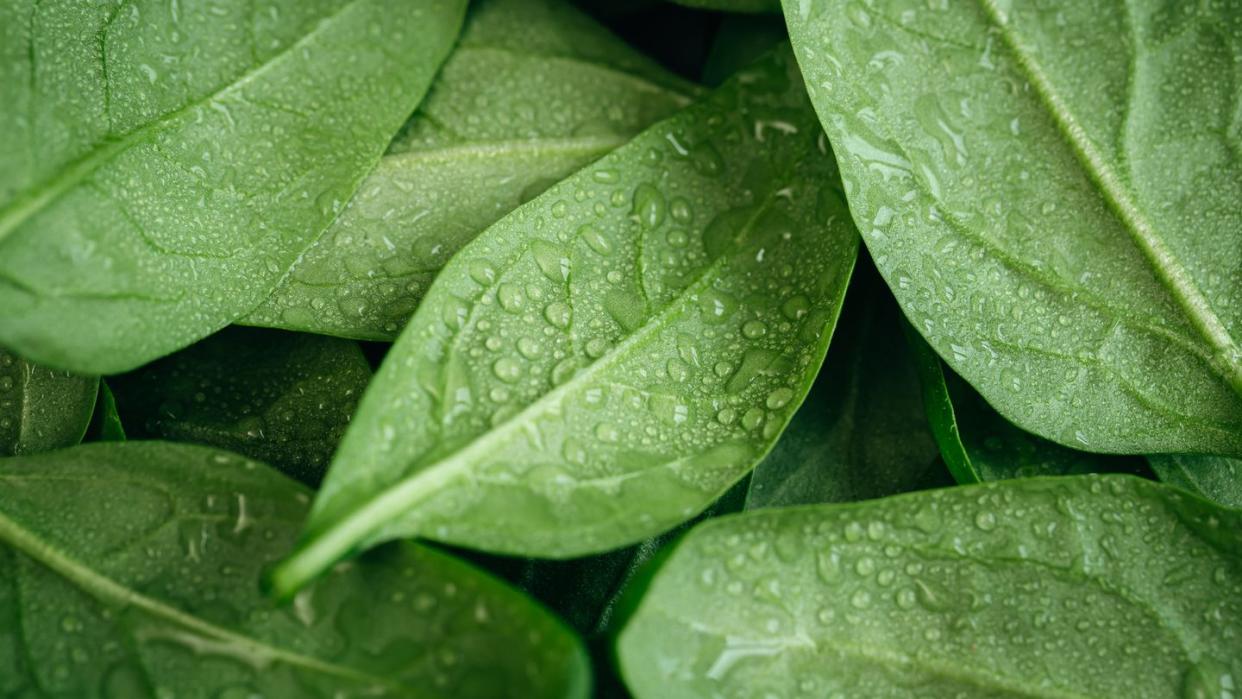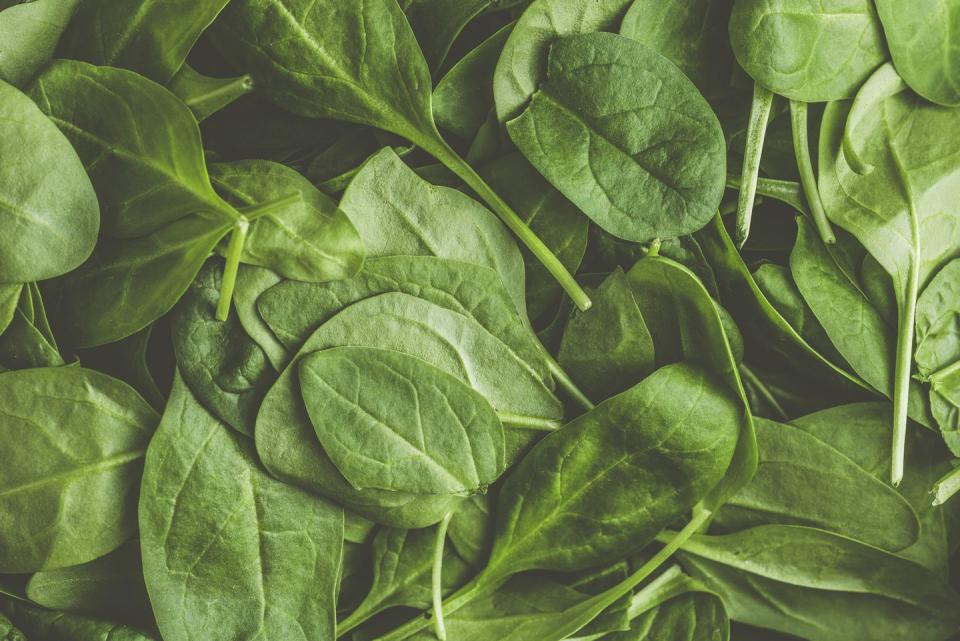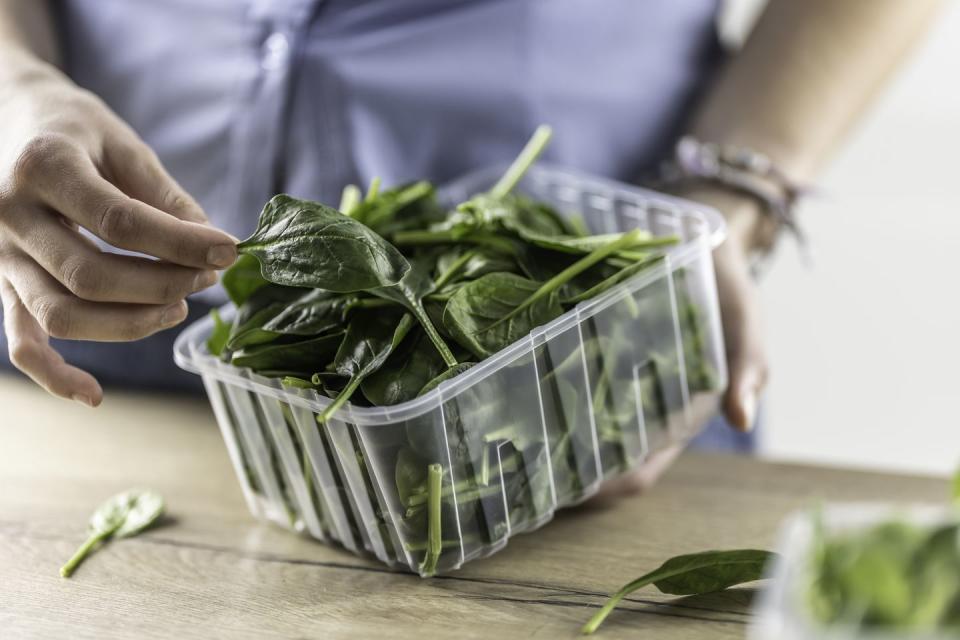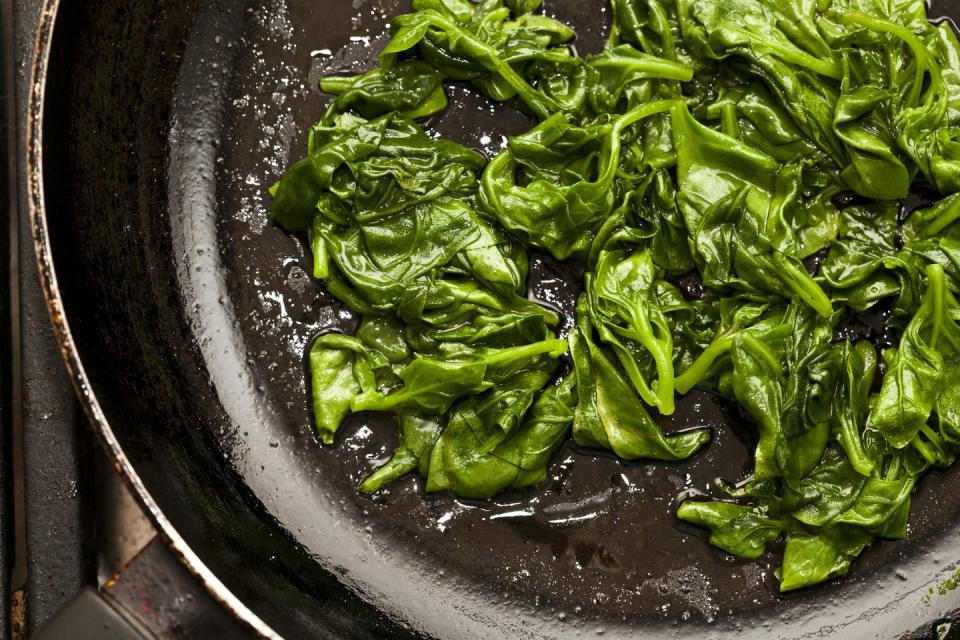The Science Behind The 'Spinach Mouth' Phenomenon

For all of the nutrients that spinach packs into its leaves, the vegetable doesn’t come without its inconveniences. A massive “family size” bag shrinks into a serving size for a small child when cooked. You almost always end up with a fleck or two stuck in your teeth. And spinach leaves behind a strange, chalky film in your mouth.
It’s seemingly inescapable. Whether we’re eating it in a salad or sauteeing it with garlic, the gritty feeling still lingers. If you’ve ever wondered what exactly causes that phenomenon, we’re here with the answers. We consulted Dr. Rosemary Trout, food scientist and professor at Drexel University, about all things spinach and why it makes your mouth feel weird.
What Causes Spinach Mouth?

The culprit behind the strange, chalky film is a compound known as oxalic acid. It’s in many foods we eat, but spinach in particular contains especially high amounts, according to Trout. As you chew spinach, the vegetable breaks down and releases the oxalic acid.
But there’s another step that takes place before you feel the gritty, chalky film. “Spinach can be classified as an anti-nutrient because it binds minerals, like iron and calcium, in spinach,” Trout says. In this case, the calcium present in our saliva binds with the oxalic acid to create calcium oxalate crystals. It’s these crystals that cause the grainy, unpleasant feeling in your mouth.
Should You Be Concerned About Spinach Mouth?

The calcium oxalate crystals that form when you eat spinach don’t pose a real danger. The oxalic acid is actually part of spinach’s natural defense mechanism to prevent predators from eating it in the wild.
And just like many other plant defense mechanisms—onions making you cry and chili peppers’ signature burn, for example—it’s not a big deal. In fact, oxalic acid is even used in dentistry to minimize tooth sensitivity.
The only potential cause for concern is for people who are particularly susceptible to kidney stones. "The insoluble oxalates can form crystals associated with kidney stones,” says Trout.
According to researchers at Colorado State University, the majority of oxalates that cause kidney stones are naturally formed as a waste product in the body—not necessarily the ones you get from your diet. So while most people don’t need to worry about spinach consumption contributing to kidney stones, those who are already prone to developing them might benefit from monitoring their spinach intake. If you’re concerned about your risk, consult your doctor.
How To Prevent Spinach Mouth

Even though the oxalic acid is spinach is effectively harmless, it doesn’t mean the grittiness in your mouth is pleasant. Thankfully, there are ways to reduce the oxalate levels and minimize the grainy sensation.
One of the simplest solutions is cooking the spinach. Methods like boiling and steaming allow the soluble oxalates to leech into the cooking water, which studies reveal can lower the oxalic acid levels anywhere from 30 to 87 percent. But keep in mind: a lot of the other beneficial nutrients will get left behind.
If you want to enjoy raw spinach, citrus may be a better solution. "To minimize the calcium oxalates, some say that adding some acid can reduce the feeling, but also add a tart taste to your spinach, which you may or may not like,” Trout says.
You Might Also Like


